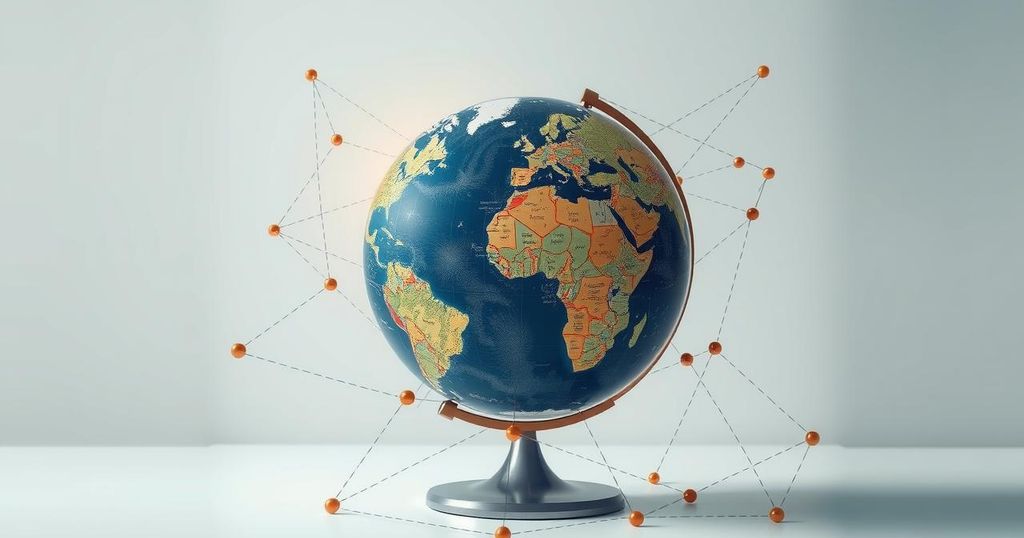Donald Trump’s criticism of South Africa’s land reform laws highlights tensions between race policies and international relations. While efforts to address historical injustices continue under President Ramaphosa, the implications for foreign investment and trade relations with the United States are significant. Figures like Trump and Musk influence the discourse, complicating the path toward equitable land reform.
Donald Trump’s recent criticism of South Africa centers on its land reform policies and perceived threats to property rights, particularly for white landowners. The debate encompasses longstanding issues of racial inequality and land ownership that trace back to apartheid. While President Cyril Ramaphosa’s government seeks to address these disparities through legislation, the implications for foreign investment and international relations loom large. Both local and global reactions to the reforms highlight the complexity of reconciling historical injustices with contemporary political realities.
The narrative of Bernard Shabangu’s grandfather, who bravely hunted a lion, symbolizes the enduring struggle against colonial injustices in South Africa. His family’s land rights were stripped away under the discriminatory Group Areas Act during apartheid. Today, Shabangu’s community showcases a partnership model aimed at successful land reform, contributing significantly to local agriculture and economic growth.
However, President Ramaphosa’s decision to allow state intervention to seize land without compensation has triggered backlash, notably from figures like Donald Trump. Trump characterized this as a form of ‘hateful rhetoric’ towards white landowners and threatened to suspend US foreign aid, potentially straining trade relations.
Landowners such as Afrikaner farmer Lion du Pressis express concerns that the expropriation of land without just compensation poses threats to property rights and investment viability. They argue that access to capital for farming relies heavily on legal assurances regarding private property ownership. The ripple effects of these changes could deter foreign investment, which is essential for economic stability.
The undercurrents of racial tensions remain palpable as land reform continues to be a pressing issue. Professor Ruth Hall articulates that access to land inequities existed well before formal apartheid and are reflected in the economic landscape today. This ongoing debate underscores the need for addressing historical grievances whilst balancing new legislative frameworks protecting property rights.
As South Africa navigates these developments, the role of international figures like Trump and Elon Musk cannot be understated. Their interventions highlight the delicate balance between domestic policies and international perceptions, particularly regarding the country’s relationships with allies, including the United States. The impact of South Africa’s stance on global issues, especially regarding Israel, further complicates its diplomatic landscape.
In the midst of this, President Ramaphosa’s administration must cleverly negotiate the demands for land reform while maintaining economic ties with the United States and other nations. The challenge lies in fostering a dialogue that can address both local historical injustices and broader geopolitical concerns without jeopardizing economic opportunities. Ultimately, South Africa’s path forward will require careful navigation of its internal aspirations and external pressures. A comprehensive understanding of these intricate dynamics is essential as South Africa strives for a more equitable future.
In summary, the ongoing land reform efforts in South Africa expose deep-seated issues of racial inequality and historical injustices rooted in apartheid. President Ramaphosa’s new expropriation laws have sparked debates about property rights, foreign investment, and international relations. With prominent figures like Donald Trump and Elon Musk weighing in on South Africa’s policies, the nation must balance historical grievances with economic realities while navigating complex diplomatic relations.
Original Source: www.bbc.com






